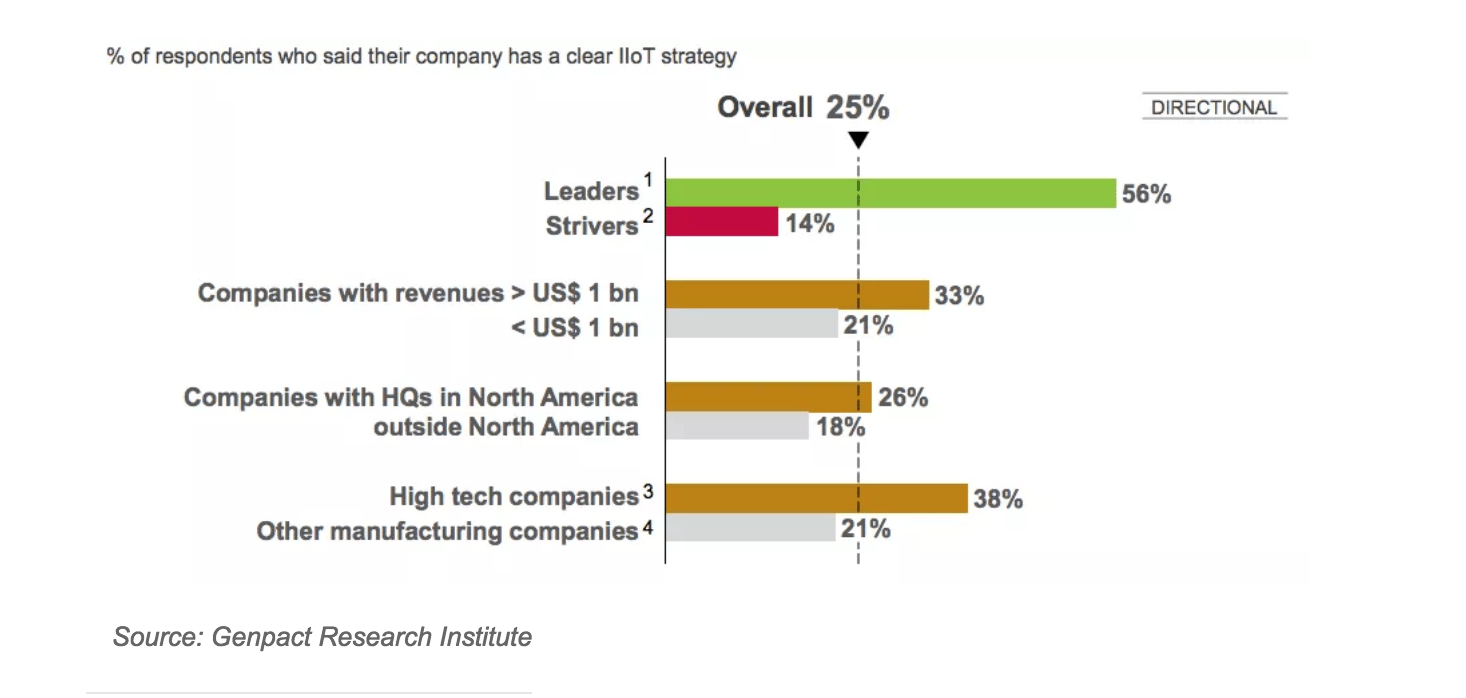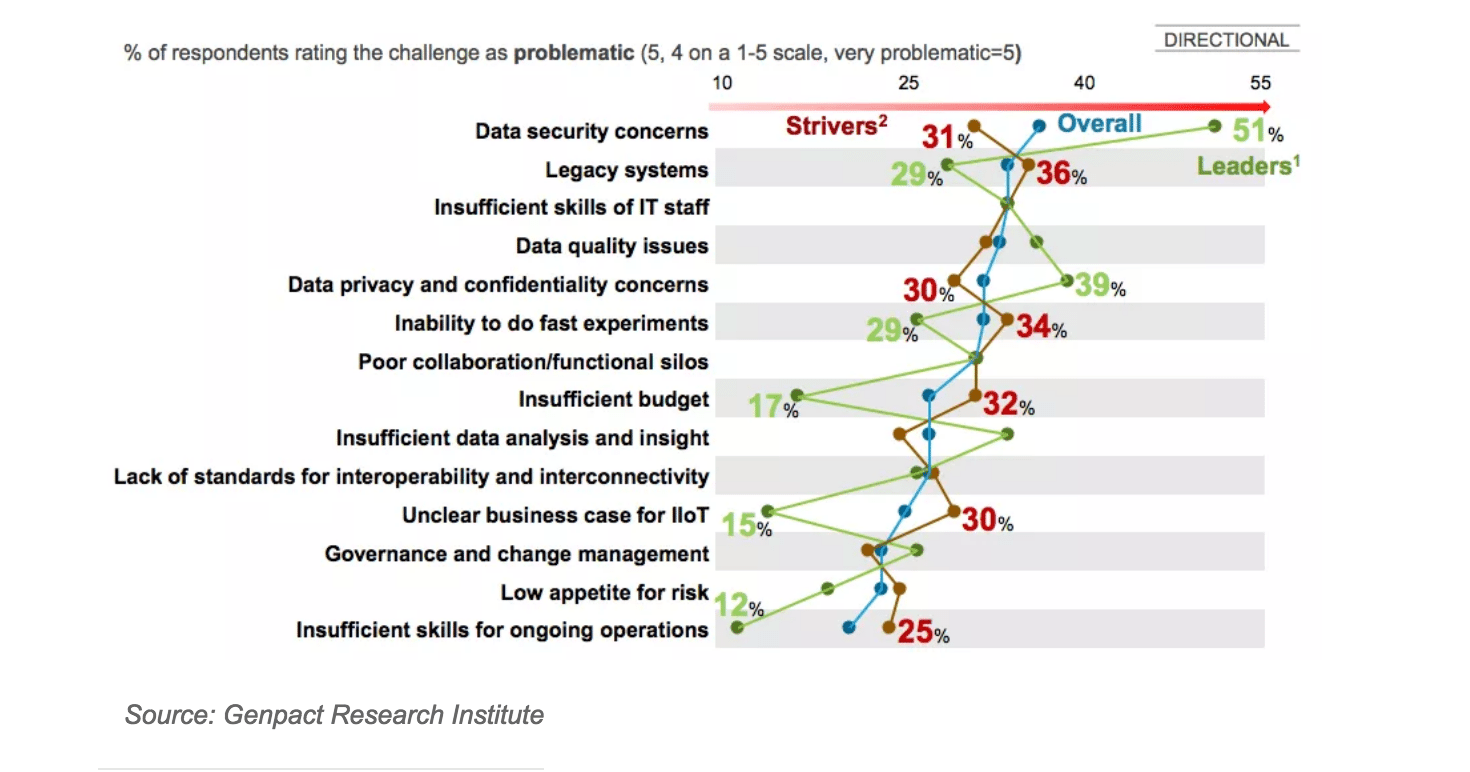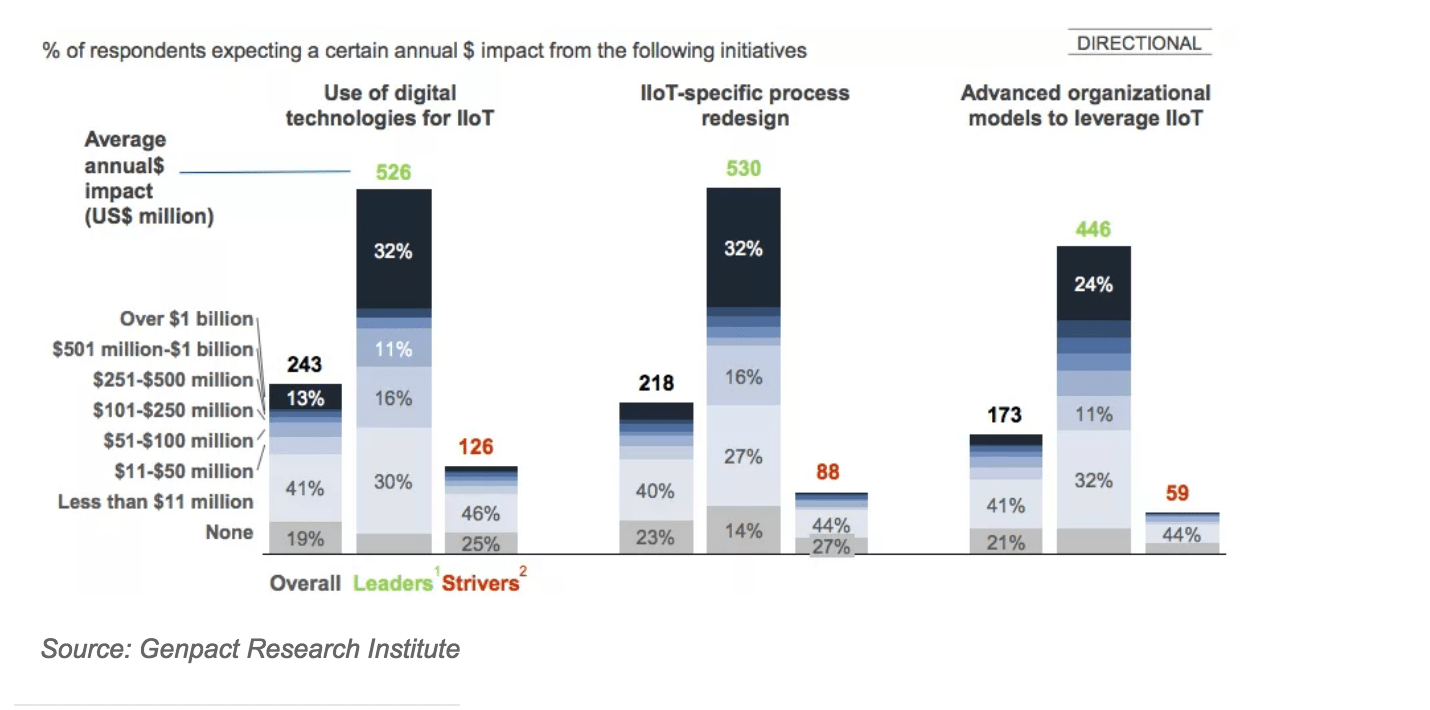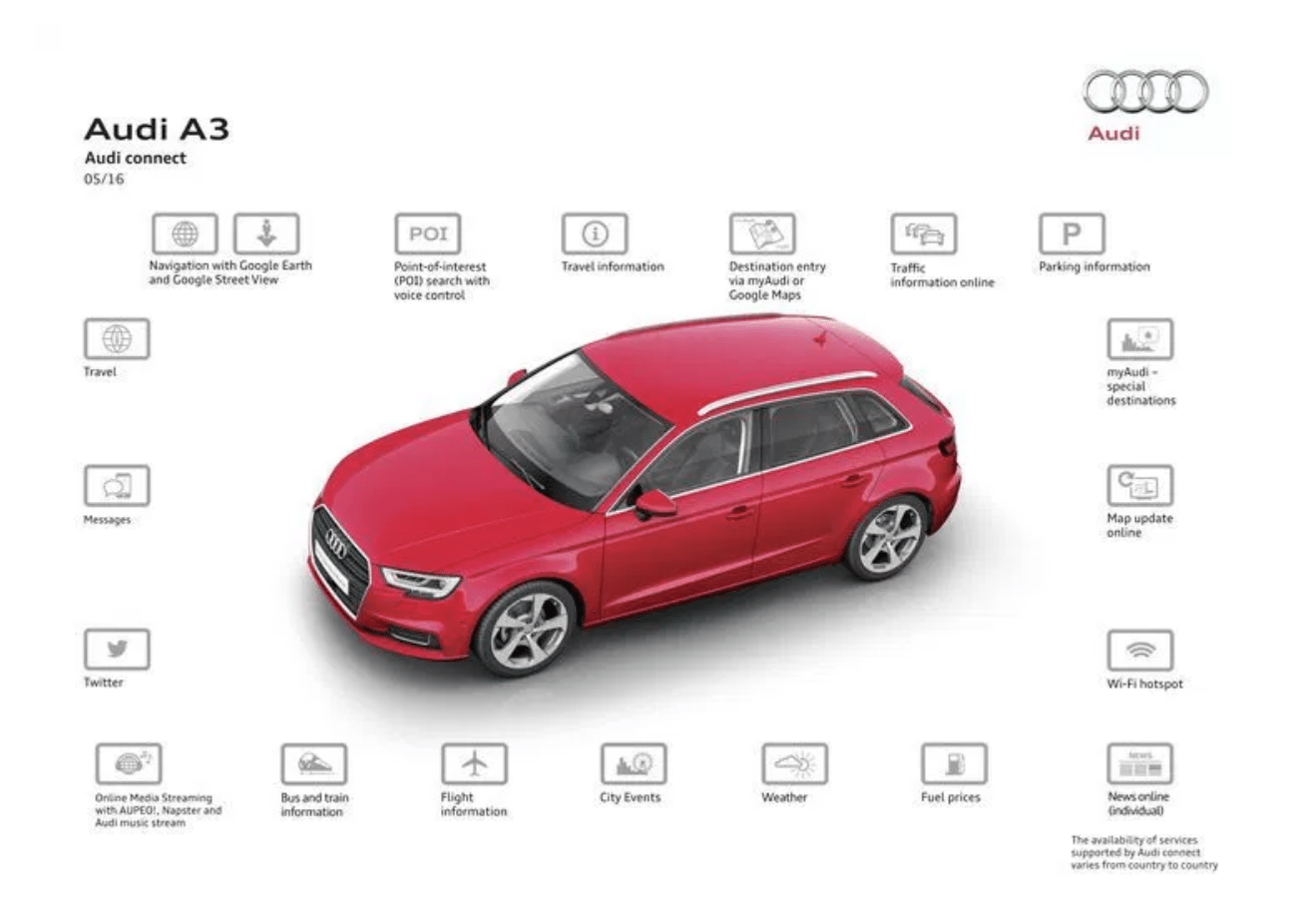Many businesses lack clear IIoT implementation strategies, despite a majority viewing it as critical to future success.
Understanding the potential of the industrial “internet of things” is one thing, implementing an IIoT strategy clearly another. There is indeed a disconnect between enterprises’ IIoT goals and their IIoT implementation strategies, despite IIoT being seen by an overwhelming majority of business leaders as key to their company’s future, with four out of five business executives believing adoption of the IIoT is critical to their company’s future success. That proportion is even higher in the high-tech sector and among large enterprises. Yet, only 25% of those executives say they have a clear IIoT strategy, according to new research by think tank Genpact Research Institute, in collaboration with IndustryWeek, GE Digital and the Industrial Internet Consortium.
“The why of industrial internet of things seems clear and solid,” said Gianni Giacomelli, SVP and head of the Genpact Research Institute, “but the what and how aren’t. This is not unusual with all new technologies that need interoperability with established operations and systems, and is particularly true where technologies use big data to make operations ‘intelligent’ – able to sense, act and learn, at scale.”
In fact, almost 30% of respondents said they will not have an IIoT strategy in the next 12 months, while nearly half said their company is currently developing a clear IIoT strategy. Another 13% are clearly skeptical about the benefits of IIoT altogether, believing they will never use such technology or capabilities.
The study also shows that growth and agility are ranked as the top IIoT priorities among business executives, tightly followed by cost. Compliance, in comparison, is prioritized much lower.

Data security and legacy systems seen as major hurdles
Data security concerns and legacy systems appear to be the main obstacles standing in the way of IIoT implementation strategies. A total of 37% of respondents cited data security as problematic and 45% expect at least a cyberattack in the next 12 months. Another 35% said the lack of skills among technology staff was an issue and 34% viewed the use of legacy systems as a problem. In addition, half of the respondents said that the IIoT made their company more susceptible to cyberattacks.

Leaders and strivers
Leaders – the top 25% of respondents that stated their IIoT strategy was ahead of the competition – estimate IIoT will have an average combined annual business impact of $1.5 billion compared to $270 million for the rest. The study noted major differences between leaders and strivers. A majority of leaders, 56%, said they have a clear IIoT strategy, with that figure decreasing to 14% among strivers. In addition, leaders were three-times more likely to rank execution of their strategy as excellent. Leaders also have a more holistic view of impact that IIoT can deliver. For example, despite the concerns about data security for all respondents, half of leaders believe interconnectivity helps proactively manage risk of cyberattacks compared to only one-third of strivers.

IIoT news recap: Audi equips new models with roaming ESIM; Sidewalk Labs and T4A partner on connected streets; Belgian regulator to identify bands for ‘5G’ testing; LinkBee raises $6 million; Today’s forecast: The total IoT market

Connected car: Audi equips all its new models with roaming ESIM
Audi announced that all its new models using the second-generation modular infotainment platform will come equipped with Audi Connect SIM, an electronic SIM offering data at a flat rate for up to three years, including roaming.
“The SIM card brings Audi connect services on board via an LTE/UMTS module with a download speed of up to 100 [megabits per second]. Services include navigation with Google Earth and Google Street View, travel, traffic and parking information. In addition, drivers can access their Twitter and email accounts and their smartphone’s calendar,” Audi said. The new offer is the result of a collaboration between Audi and Irish connectivity company Cubic Telecom.
Smart cities: Alphabet’s Sidewalk Labs and T4A partner on connected streets
Alphabet’s subsidiary Sidewalk Labs announced a partnership with Transportation for America to build a collaborative network of city leaders with the aim of helping cities design and plan for connected streets.
“Advancing the concept of complete streets into the digital realm, connected streets aim to provide tech-enabled, multimodal options that expand access to job opportunities across the region. For some cities that might mean strategic partnerships between legacy transit agencies and ride-hail apps to create suburban last-mile options. For others, it could mean directly subsidizing ride-hailing services in areas with weak bus service,” Sidewalk Labs wrote in a blog post.
5G: Belgian regulator to identify most suitable bands for 5G testing
Belgian regulator BIPT is working with Ericsson to identify suitable test bands for “5G,” Telecompaper reports, citing Belgian paper L’écho. Alexander de Croo, Belgian telecom minister, wants license holders to involve Belgian researchers or start-ups in the tests.
Startup: Smart home solutions company LinkBee raises $6M in seed round
Smart home specialist LinkBee has closed a $6 million seed round co-led by Pegasus Capital Advisors and Loeb Enterprises. The startup will use the funding to accelerate product development and expand its team in the Bay Area.
“In a very short time we have assembled a truly world-class team, one that is passionate about creating a meaningful and democratized smart home platform for the mass market. This infusion of capital is a testament to the impressive progress that our team has made and the unique approach that we are taking to this evolving market,” said Dr. Jason Slosberg, CEO of LinkBee. LinkBee’s end-to-end system is centered around proprietary LED light bulbs and sensors. The company expects to launch a market-ready solution in select cities later this year and nationally in 2017.
Today’s forecast: Total IoT market worth $150B in 2016
Analyst firm Strategy Analytics expects the market for all elements of IoT to be worth $150 billion in 2016, and that by 2025, the market will have grown to $550 billion.
“In the history of technology market analysis, this is the first time people have been talking about a market in the extraordinary terms of ‘trillions of dollars’ with such a lack of clarity on market definition,” said Harvey Cohen, president of Strategy Analytics. “Our research examined IoT market potential in terms of its relationships to global economies, nonresidential investment and total IT expenditures to produce a number with transparency on key assumptions.”
Strategy Analytics projects IoT to grow to be about 11% of total IT spending by 2025.

